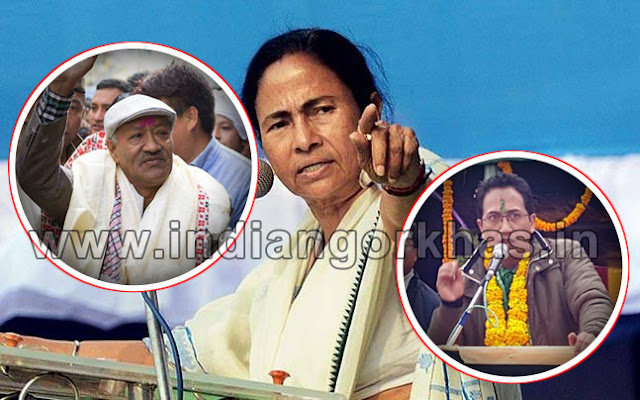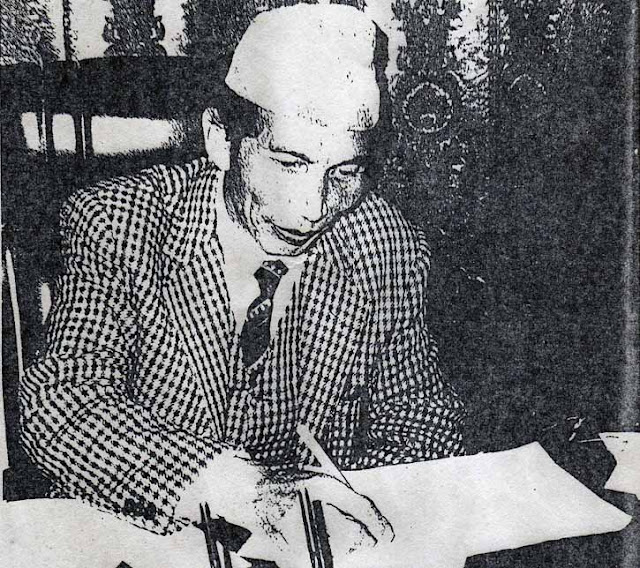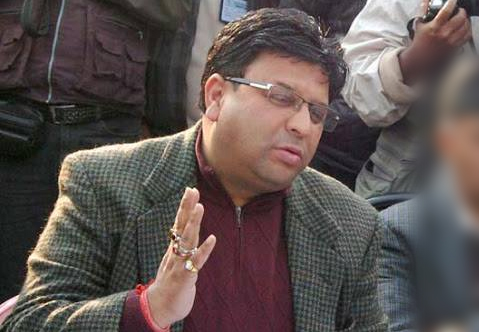Mamata Banerjee has decided to include Harka Bahadur Chhetri and Mann Ghisingh in her new committees in a move to consolidate the anti-Morcha votes in the upcoming elections. With the GNLF and JAP presidents getting posts in the committees Gorkha Janmukti Morcha GJM accused them for selling the statehood dream of the people for their respective posts.
Morcha barb at Mamata panels
Writes Vivek Chhetri and Rajeev Ravidas for Telegraph
Darjeeling, June 30: The Gorkha Janmukti Morcha today criticised Mamata Banerjee's decision to nominate Harka Bahadur Chhetri and Mann Ghisingh in the new committees she had announced yesterday and said that her efforts to consolidate the anti-Morcha votes will not have any impact on the hill party in the upcoming civic and GTA elections.
The Morcha accused the presidents of the Jana Andolan Party (Chhetri) and the GNLF (Mann) for selling the statehood dream of the people for the post of vice-chairmen in the panels.
"We congratulate both Harka Bahadur Chhetri and Mann Ghisingh for becoming the vice-chairmen of different government panels. They have been appointed as vice-chairmen despite being presidents of their respective parties. Could anything be more demoralising and humiliating for their parties?" asked Binay Tamang, the assistant general secretary of the Morcha.
 |
| Harka Bahadur Chhetri and Mann Ghisingh in Mamata Banerjee's new committees |
Yesterday, Mamata Banerjee announced four new committees in Siliguri and made some of the former ministers and Trinamul leaders who had lost the Assembly polls members of the panels.
Apart from her party leaders, Chhetri and Mann also made it to the committees.
While Chhetri has been made the vice-chairman of Uttarbanga Unnayan Parshad, Mann has been nominated as the vice-chairman of the North Bengal Board for Development of Sports and Games.
The Parshad will be headed by Abdul Karim Chowdhury and Bhaichung Bhutia has been named as the head of the sports panel.
Today, Tamang said: "Earlier, too, Harka Bahadur Chhetri's name had featured in TMC's candidate list but it was removed later. The recent development proves that the JAP and TMC are the same. Harka Bahadur Chhetri had said that he had made a roadmap for his party till 2025. It seems the roadmap was to get a chair for himself."
Criticising Mann's nomination to the panel, Tamang said: "The Gorkhaland martyrs' dream has been sold for a post of vice-chairman by the GNLF. Of late, the GNLF has been saying that they do not need Gorkhaland. We want to remind them that one should not forget one's community and its aspirations."
The Morcha said Mamata's decision to include the two hill leaders was aimed at consolidating anti-Morcha votes. "The decision was taken to ensure that the three parties (JAP, GNLF and TMC) fight the municipality and the GTA elections together. In the past, too, they had joined hands against us but it did not have any impact (on us). This development, too, will have no impact," said Tamang.
Mann Ghisingh, who is in Siliguri, said over the phone: "I have not received any official letter (regarding the committee and his post in it) and I need to know the details first before commenting. I came to know about the development through The Telegraph this morning."
In Kalimpong, Harka said: "I would like to thank the Bengal chief minister. This, in a way, is proof of her trust on my capacity and capability. I will try to live up to her trust and do whatever is required of me in the office ... I do not know yet what my responsibilities would be. I am yet to get a formal letter. Once I get it, I will go to the (council) office, and get myself acquainted with my responsibilities and work."
GJM denounces GNLF, JAP for selling-off statehood demand published in - EOI
DARJEELING 30 Jun 2016 With chief minister Mamata Banerjee announcing certain posts in various state government panels to GNLF president Mann Ghisingh and Jan Andolan Party president Harka Bahadur Chhetri, the Gorkha Janmukti Morcha has slammed them for selling off and exchanging the statehood demand to secure these posts.
On Wednesday in Siliguri, the chief minister also announced the names of hill TMC leaders Shanta Chhetri as a member of the Advisory Council of Tea Directorate and Sardha Subba Rai as the director of the North Bengal State Transport Corporation. Ghisingh has been made the vice-chairman of the North Bengal Board for Development of Sports and Games while Chhetri has become the vice-chairman of the Uttarbanga Unnayan Parishad.
GJM assistant secretary Binay Tamang said, “We congratulate them, especially the hill TMC leaders, who were given important posts by the chief minister. We have nothing to comment on this as the chief minister can do so in her official capacity. But what came as a surprise was the GNLF and JAP presidents getting posts. Once again it has been proven that the JAP and the TMC are one and the same body as during the Vidhan Sabha election too, Chhetri's name had been initially announced by Mamata as a TMC candidate. When the JAP was formed, they had said they had prepared a roadmap for Gorkhaland, but now this has been proved otherwise,” said Tamang.
He added, “It seems that the GNLF too has sold-off the demand or Sixth Schedule and Gorkhaland for the post of a vice-chairman. They have also sold the dreams of the 1,200 martyrs of the Gorkhaland agitation in the mid eighties. Recently, a GNLF delegation met with the chief minister in Kolkata and the dole Ghisingh has received seems to be the main topic they discussed about.”
Tamang further said that the chief minister's announcements was a clear indication that the three parties would join hands in fighting upcoming elections, but this would not affect the Morcha at all.
When reminded that his party too was trying to improve relations with the state government, Tamang said, “Being the ruling party here and in charge of the Gorkhaland Territorial Administration, it is prudent to maintain a good working relationship with the state government. But this does not mean we have a political relationship as well as we demand statehood while the state government is against it.”
When Chhetri was contacted, he said, “I thank the chief minister for announcing my name as vice-chairman of the north Bengal development board and once I receive official intimation I will see what I can do to help the people.” Commenting on the allegations made by the Morcha, he said, “It is the GJM who is not sincere about the Gorkhaland demand and use it as an issue only during elections.
They mainly criticise our party as we have done so much in such little time; they are afraid of losing popular support as they have not done anything.
Moreover, they are no one to comment on who we keep good relations with as such terms have to be maintained for the benefit of the people. As for the matter of being in love with an official post, please do not forget that GJM chief Bimal Gurung had once quit as the GTA chief executive only to occupy it immediately afterwards.”
Chhetri also stressed that the JAP has not decided anything regarding forthcoming elections. While the GNLF president could not be contacted even after repeated attempts, party general secretary Mahendra Chhetri said, “We have not received any official intimation about our president being given a post and what we know is through the media. Any decision to that effect will be taken once we receive official confirmation and by holding a meeting. As for the allegations by the GJM, everyone can see that we are keenly pursuing the demand for Sixth Schedule, which we believe, is a step towards achieving Gorkhaland.” (EOIC)
Via EOI & Telegraph

























